Before the ice-fishing tents appeared in a parking lot off Grant Street six months ago, Tim Keran said he and his neighbors were a little concerned about who was about to move in next door.
"We had that talk here where we all felt uncomfortable," he said as he sat in the sun outside his apartment building. "Because, they were homeless."
But the tents and fences went up and people who might otherwise sleep on the street got settled into the new camp. After that, not much else changed besides Keran's mind.
"As soon as it started it was like they weren't even there," Keran said, "So I don't know why people are so up in arms."
The encampment was the first of two "safe outdoor spaces" that the city green-lit late last year. Housing and homeless rights advocates tried to get something like it approved for years, but Mayor Michael Hancock was steadfast in his opposition to the idea. Then COVID-19 arrived, which shut down the city's regular shelters and upped the stakes. Hancock's position shifted, and last June he announced his support for sites like these through the pandemic.
The city allowed about 50 tents to go up between two sites off Grant and Pearl streets in December, but they were only allowed to stay for six months. That lease is up on Tuesday, when residents from both camps will relocate to a new site at Regis University. In mid-June, those who want to can relocate to a second new site at Park Hill United Methodist Church.
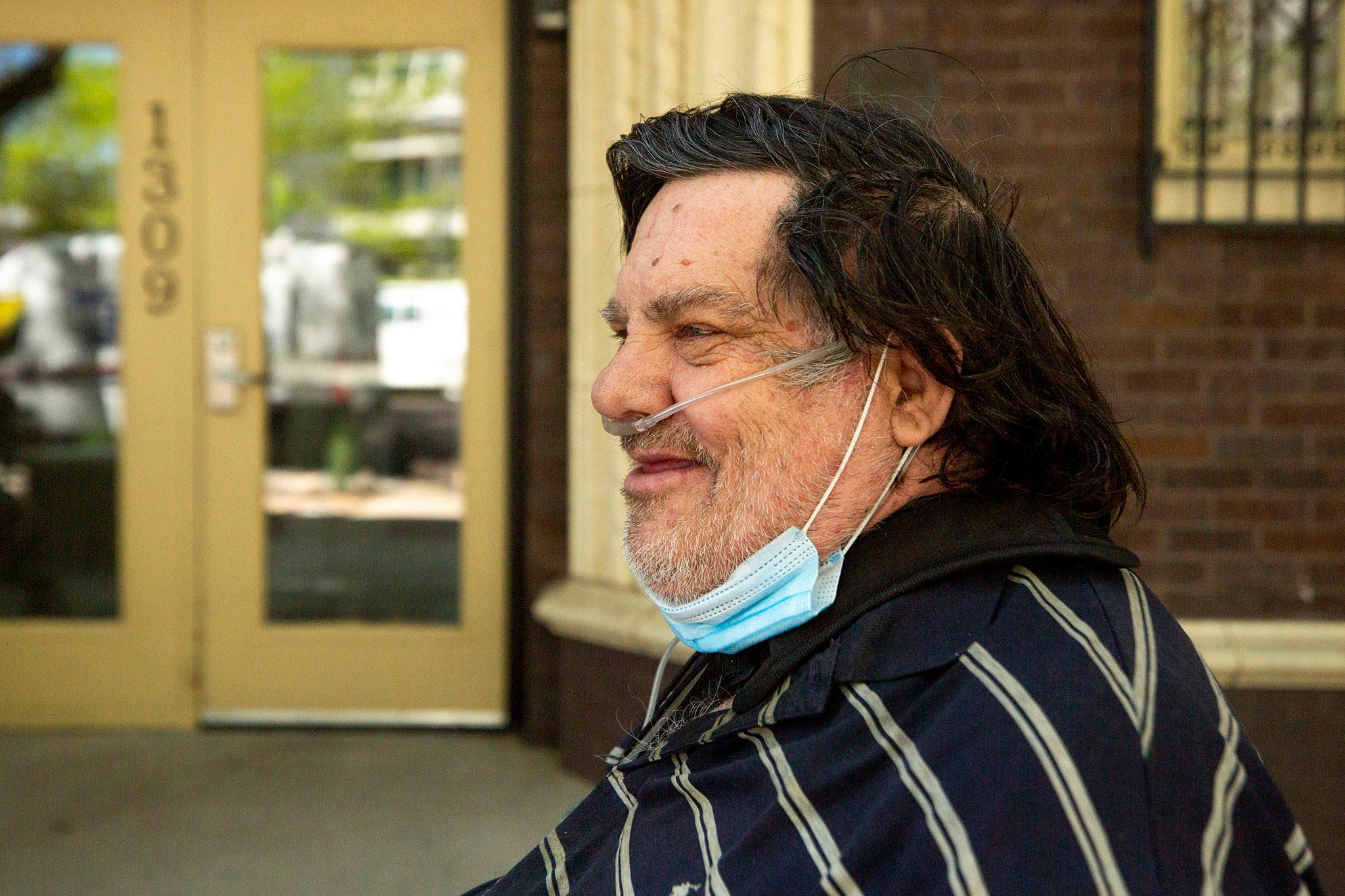
Keran wasn't the only housed neighbor who felt misgivings when the first two sites were announced. Some were upset that Denver's central District 10 was shouldering the burden of this experiment. But six months later, people we spoke to who live and work near the two camps only had positive things to say about them.
"It was a godsend."
Taresa Harlow has lived at 16th Avenue and Pearl Street with her boyfriend for about three years. Before the safe outdoor space site arrived at the Denver Community Church across the street, a large group of people had gathered in their own tents in a nearby parking lot. The unsanctioned campsite gave her pause. It was a lot to look at and it made the block feel unruly.
The city swept that camp as the sanctioned site moved in. Harlow said the new regime was clean and orderly, and she had no problem living next to these unhoused neighbors.
"It was a night-and-day difference," she said. "It's been phenomenal and the neighborhood as a whole is very upset that it's leaving."
Next door, Kaye Siemers expressed similar sentiment.
"No, it hasn't been a problem at all," she said. "I have to support some kind of housing, given my history."
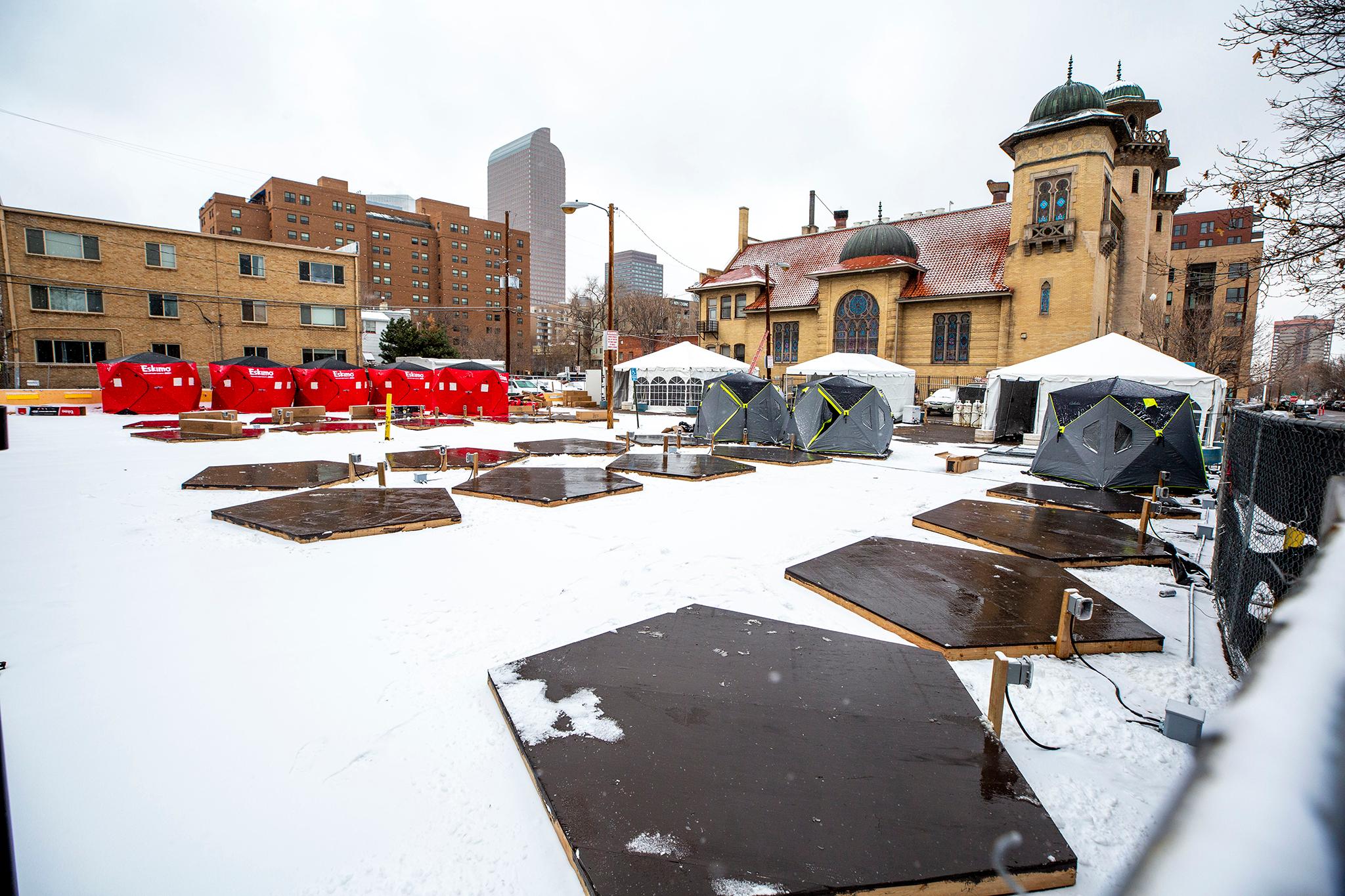
Siemers has lived on the block for three decades. She was deeply involved with neighborhood groups like Capitol Hill United Neighbors and the North Capitol Hill Development Corporation, and she used her positions to push for more affordable housing in the area.
Progress on affordability has always been a tough sell, Siemers said, so she's not surprised there are so many people without shelter in the city. To her, these sanctioned camps represent one piece in a much larger puzzle to deal with Denver's homelessness crisis.
"That should be a part of the whole equation," she said. "We all have an obligation to do something to provide housing. I know there's no panacea."
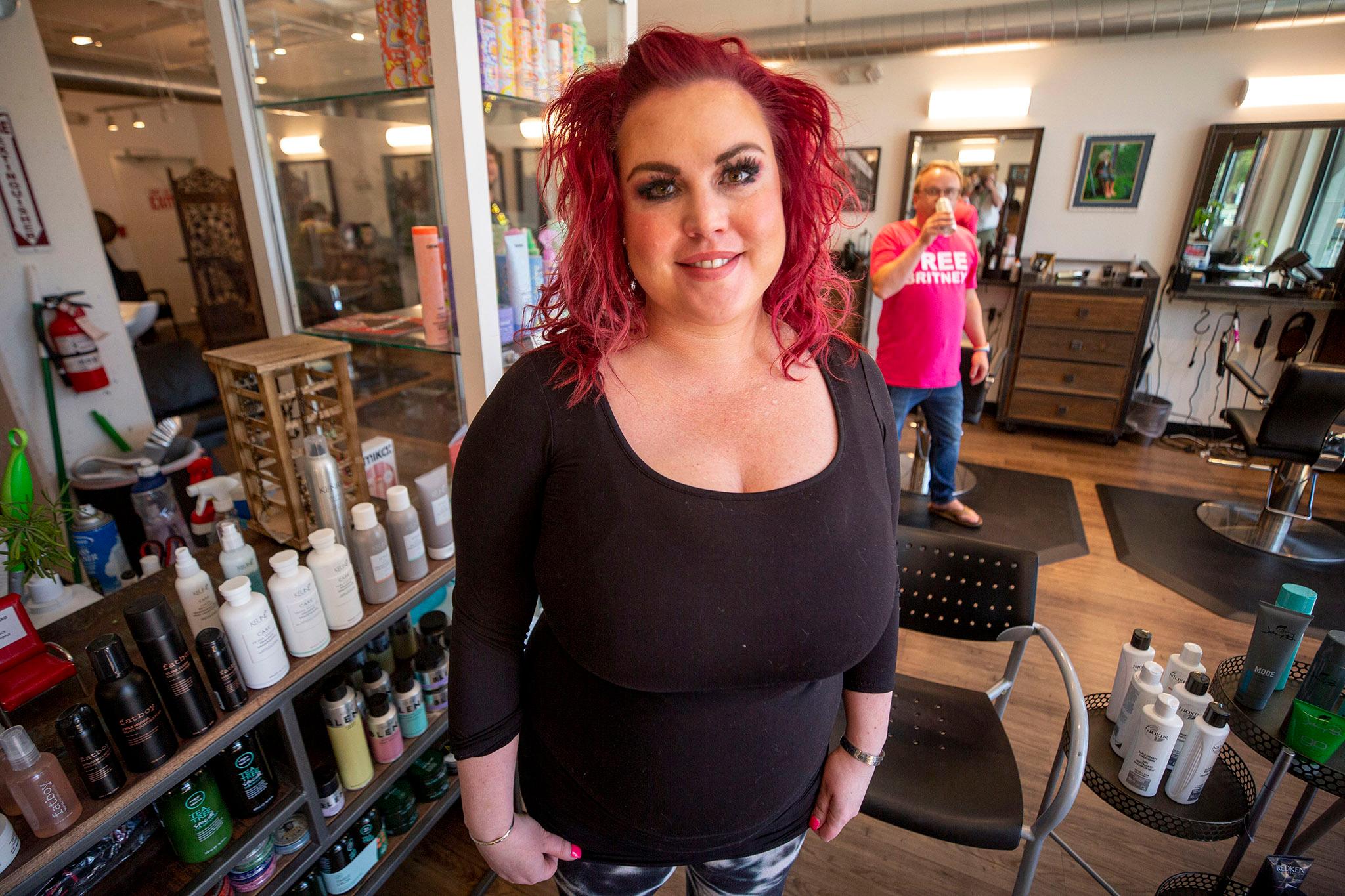
Kevin J. Beaty/Denverite
Across the street from the Grant Street camp, hairstylist Andrea Bailey said she was glad to know at least some of Denver's most vulnerable residents had somewhere safe to sleep during last winter's snowstorms. Like Harlow, she said the supervised setup was much easier to coexist with than the tent cities that sprang up intermittently around the salon where she works.
She watched as people and tents accumulated in alleyways and on the side of the road, then scatter and regroup around the block after city workers forced them to move. It made the neighborhood unpredictable. The safe outdoor space site, she said, was a steady, orderly and constructive solution.
"I think it's a great thing," she told us. "I think we all agree that they can stick around."
City Council Member Chris Hinds, who presides over District 10, said he's heard pretty much the same from his constituents.
While he received more than 1,000 emails in opposition to the sites before they went up, the complaints died down quickly after people started moving in. People who were concerned "became no longer concerned," he said. Others never noticed them in the first place.
"It was just a resounding success," he told us. "There's success for the surrounding neighbors and the surrounding community, but it was also a success for people who were lucky enough to be residents."
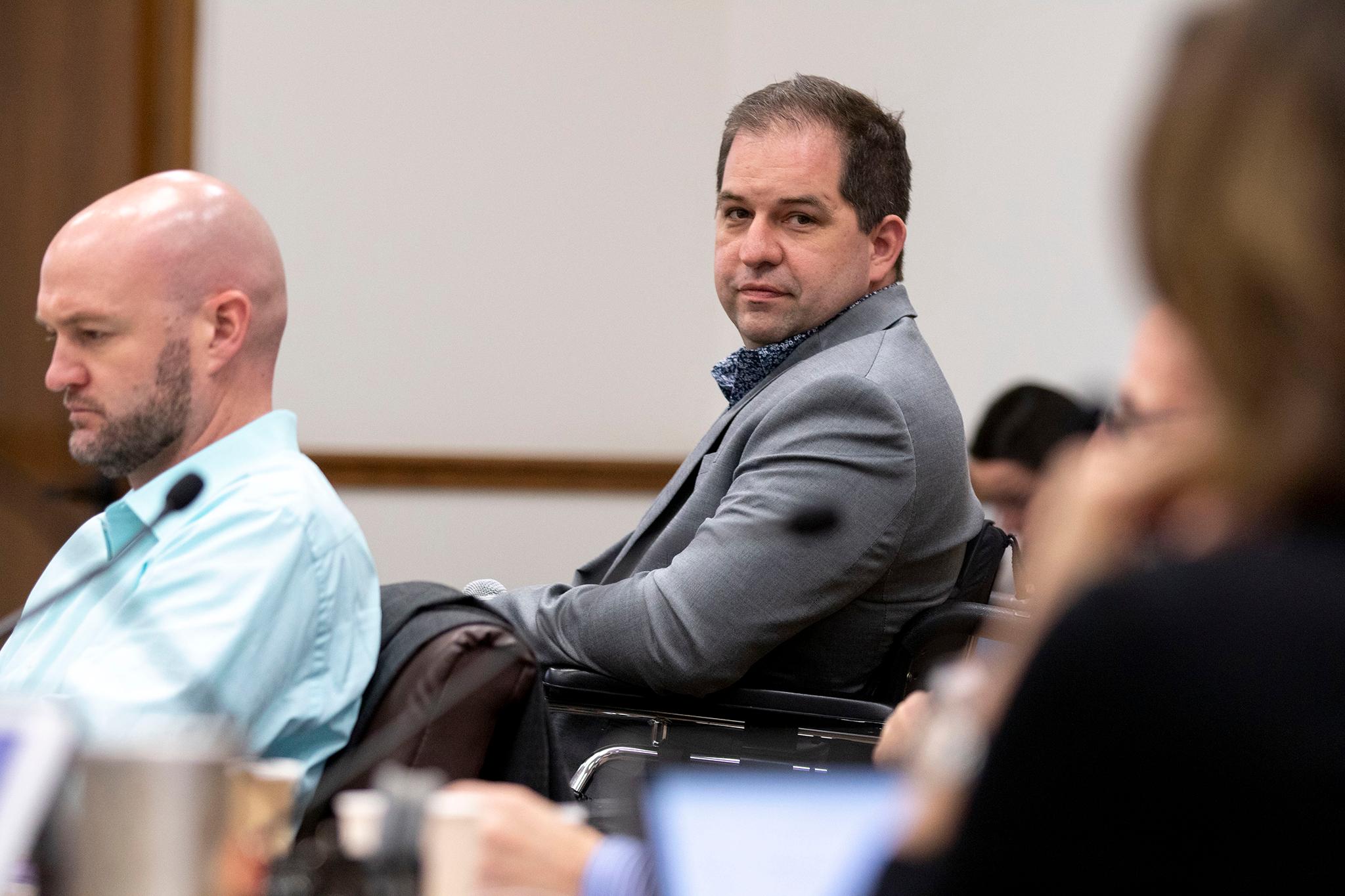
We checked in with Denver Police to see if they noticed any new crime or safety problems near either camp after they opened. Public Information Officer Kurt Barnes told us he wasn't aware of any ongoing or one-time issues related to the sites.
We also analyzed police data, and compared the number of crimes reported on the blocks surrounding both sites to the numbers of crimes reported in each of their surrounding neighborhoods. The block surrounding the Grant Street camp accounted for less than 5 percent of crimes reported in Capitol Hill for a full year before the sanctioned site moved in; that trend didn't budge after it opened.
The picture is a little less straightforward for Pearl Street, since it's so close to Colfax Avenue and a major hotspot for drug crimes in the city. While the proportion of crimes reported on the block surrounding the Pearl Street site - compared to Uptown as a whole - did rise after the camp opened, it wasn't out of line with numbers recorded long before people moved in.
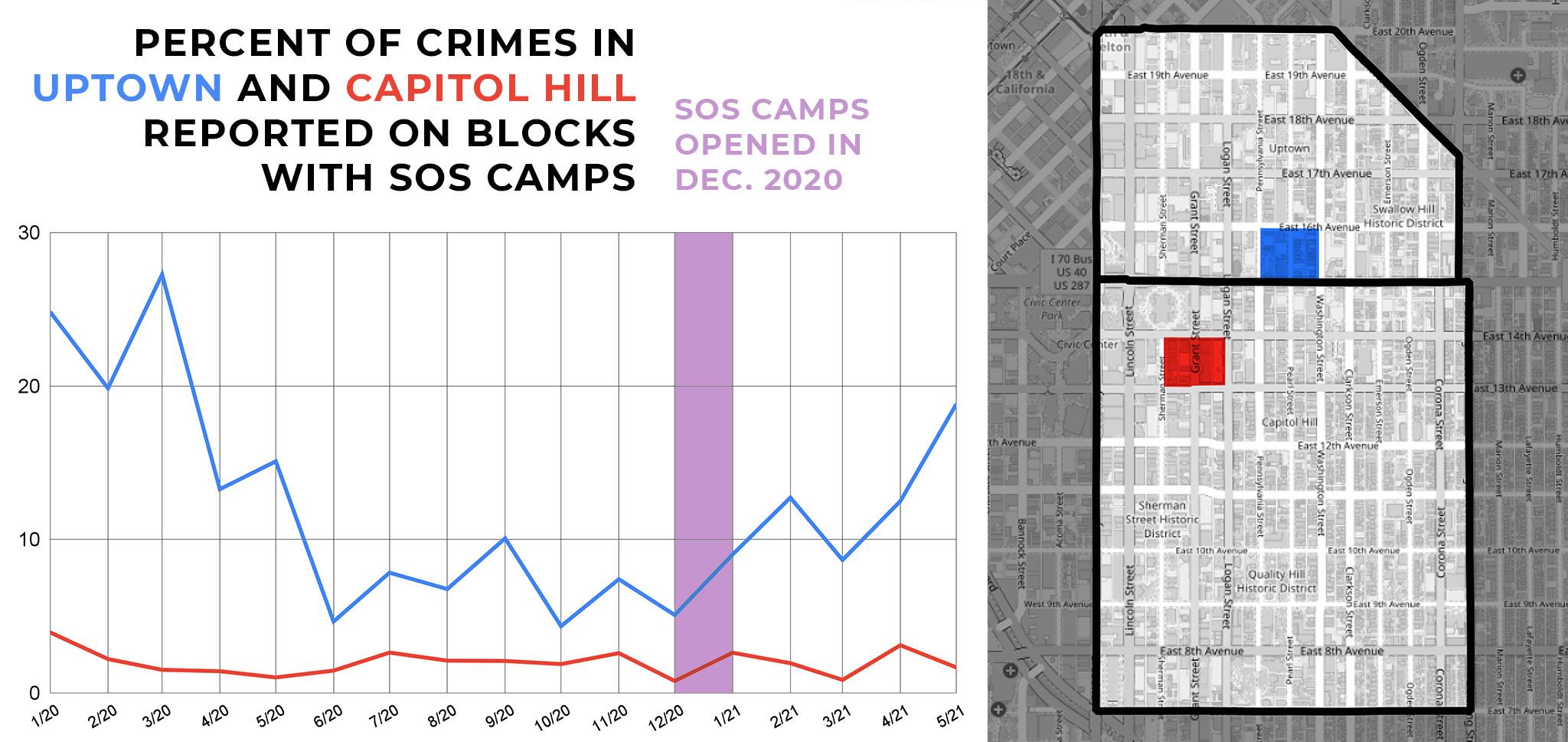
Cole Chandler, director of the Colorado Village Collaborative nonprofit that manages the Pearl Street site, told us existing drug problems on the block has been one major difficulty for the operation.
"We can't wait to get out of that environment. Every single day we're having to move drug dealers away from our site that aren't involved in our site but sit there in the shade," he said. "The only times that we've called the police to our site has been about that kind of activity. We've had zero calls for police service to our site to deal with residents."
Meanwhile, Chandler said service providers at the Pearl Street site have been able to schedule more than 180 case management appointments with residents, get seven people into long-term housing and a dozen people employed. He said there are currently five Pearl Street residents with housing vouchers who are "actively seeking placement." For some residents, the setup has offered a new and profound sense of security.
Chandler told us he has "not heard a single negative word from a neighbor" about the camp. But as the sanctioned sites prepare to migrate to Regis and Park Hill, he's dealing with some of the same fears he saw Uptown six months ago. In May, Park Hill residents sued to stop the camp heading their way, but a judge later tossed out their complaint.
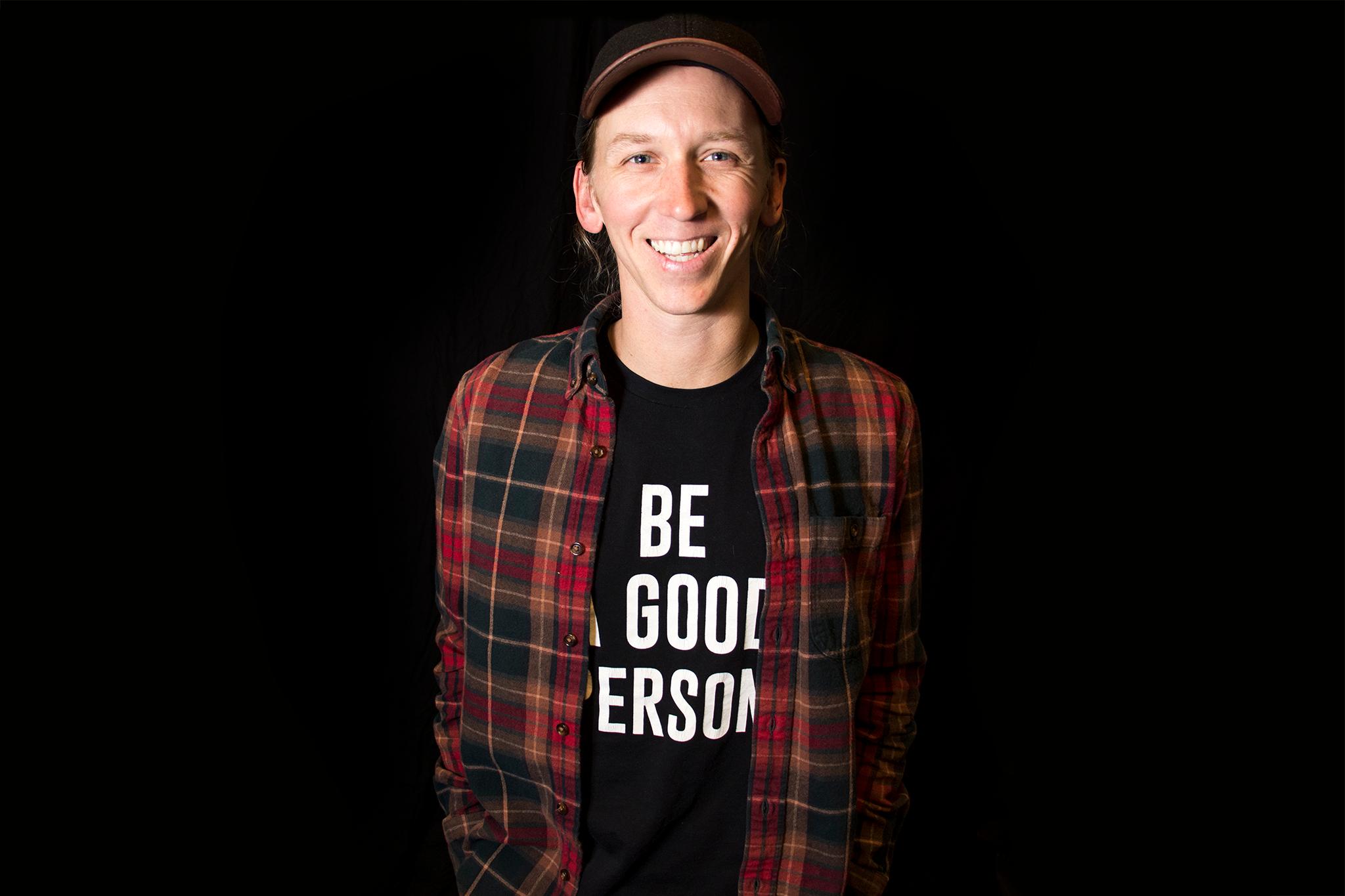
Hinds and Chandler both said they hope these programs continue to show a track record of success that translates to broader public acceptance.
"I hope it will just become a nonissue," Hinds said. "It is so expensive for us as a city to continue to do sweeps - cleanups as the mayor's office likes to call them."
While these two camps were able to bring some people off Denver's sidewalks and easements, sweeps have continued for those left behind. Between January and April, there were only three weeks when the city didn't orchestrate a large-scale cleanup forcing people living in tents to move along.













